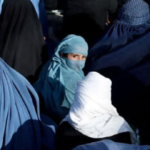ISLAMABAD: On Thursday, Pakistan was able to obtain a lifeline of approximately $4 billion from Saudi Arabia and the United Arab Emirates in order to successfully navigate the immediate challenge of a sovereign default amid rapidly decreasing foreign exchange reserves, massive flood damages, and an overall economic slowdown.
The United Arab Emirates said in two separate official announcements that it would roll over $2 billion in debt that would be due in the next two months and would then provide an additional $1 billion in support during Prime Minister Shehbaz Sharif’s ongoing visit to the emirates.
Separately, in Islamabad, an agreement was signed by the Saudi Fund for Development (SFD) to finance oil imports worth $1 billion with deferred payment.
On Thursday, the central bank’s reserves fell to a critical level of $4.34 billion. This was the lowest level since February 2014, and it was barely enough to finance controlled imports for less than a month.
The UAE’s previous $2 billion loans were scheduled to be repaid in February and March. The rollover now gives the government a chance to restart the IMF program over the next few days, gradually restore foreign exchange reserves, and end the tight import control that has crippled the manufacturing sector and caused a shortage of essential items.
According to the ministry, SFD Chief Executive Officer Sultan Abdulrahman Al-Marshad and Ministry of Economic Affairs Secretary Dr. Kazim Niaz signed the agreement on Saudi support in Islamabad to finance oil derivatives worth $1 billion to Pakistan.
It stated that the agreement was a formal response to Saudi King Salman bin Abdulaziz and Crown Prince Mohammed bin Salman’s instructions to support Pakistan during difficult times.
Saudi Arabia stated earlier this week that it was considering increasing its deposit in Pakistan’s central bank from $3 billion to $5 billion and increasing its investments in Pakistan to $10 billion. The specifics have not yet been determined.
The strategic agreement signed on Thursday is meant to help Pakistan’s economy, sector growth, and overcoming economic obstacles. According to the ministry, it is a continuation of Saudi Arabia’s support for Pakistan to build a sustainable economy.
It was noted that the SFD had signed agreements in 2019 and 2021 to finance oil derivatives, also known as the Saudi oil facility, with a value of $4.44 billion, but that these agreements could not be fully utilized.
The statement said, “The agreement marks the latest steps taken by the government of Saudi Arabia through the SFD and the Pakistani authorities to enhance development in the country.” It also said that since its inception, the SFD has supported more than 40 projects and programs in various development sectors valued at approximately $1.4 billion to finance Pakistan’s projects in energy, water, transportation, and infrastructure.
PM meets UAE president
In an announcement, the Prime Minister’s Office stated that UAE President Sheikh Mohamed bin Zayed Al Nahyan “agreed to roll over the existing loan of $2 billion and provide $1 billion additional loan” during a meeting with Prime Minister Shehbaz Sharif on Thursday in Abu Dhabi.
It stated that Sheikh Al Nahyan welcomed Mr. Sharif to Abu Dhabi, wished Pakistan progress and prosperity, praised the historical ties between the two countries and the contributions made by the Pakistani community in the UAE, and agreed to visit Pakistan at later dates to be determined.
The two leaders looked into ways to strengthen the ties of friendship that already exist between Pakistan and the United Arab Emirates, particularly in the areas of energy, investment, and trade.
Additionally, the two leaders discussed matters of mutual interest on a regional and international scale. It stated that “both parties agreed to deepen investment cooperation, encourage partnerships, and enable investment integration opportunities between the two countries.”
They were also pleased with the steady pace of progress in bilateral relations. They agreed that if they wanted the relationship to grow and gain momentum, they needed to have more bilateral exchanges and talk to each other on a regular basis at all levels.






